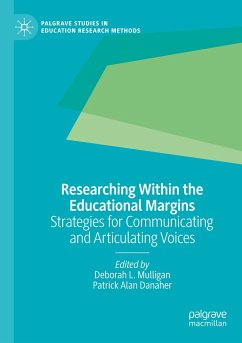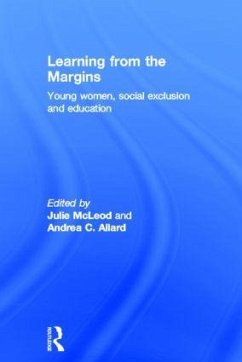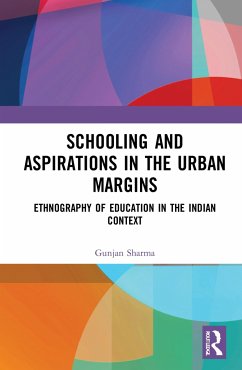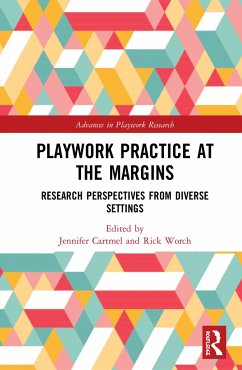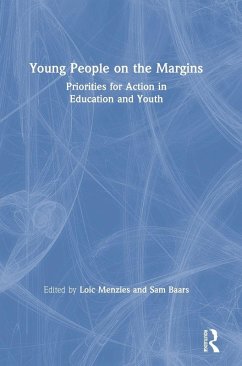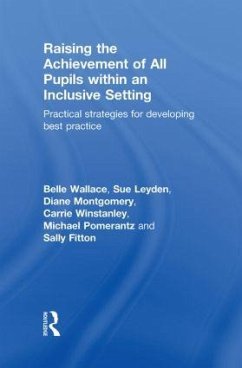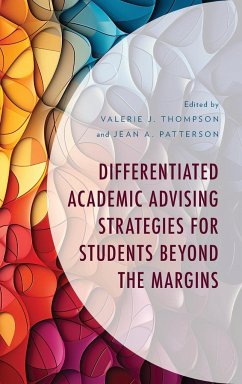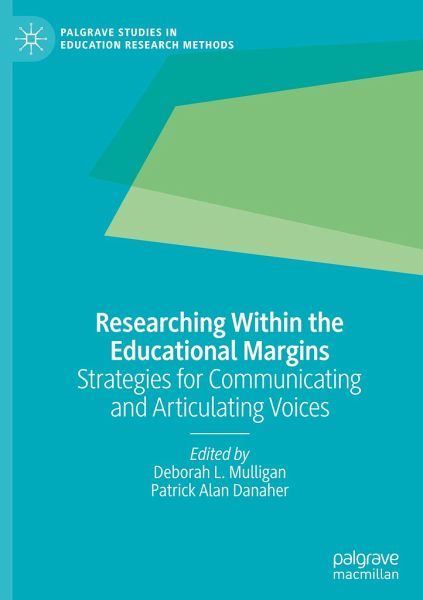
Researching Within the Educational Margins
Strategies for Communicating and Articulating Voices
Herausgegeben: Mulligan, Deborah L.; Danaher, Patrick Alan

PAYBACK Punkte
38 °P sammeln!
This book explores the challenges and considerations of researchers who work on the educational margins of society. It investigates the diverse and specific research strategies that have been developed to ensure research is authentic, ethical, rigorous, situated and, where possible, empowering. Traversing cutting-edge global research, the chapters demonstrate the effectiveness of specific research methods when researching within educational margins related to particular 'wicked problems'. Against a backdrop of increasing scrutiny of the conduct of researchers working with marginalised people, ...
This book explores the challenges and considerations of researchers who work on the educational margins of society. It investigates the diverse and specific research strategies that have been developed to ensure research is authentic, ethical, rigorous, situated and, where possible, empowering. Traversing cutting-edge global research, the chapters demonstrate the effectiveness of specific research methods when researching within educational margins related to particular 'wicked problems'. Against a backdrop of increasing scrutiny of the conduct of researchers working with marginalised people, this book provides an informed and empowering overview of research methods for those working with marginalised groups.





